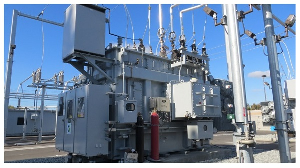 The power sector is now beleaguered with operational and financial inefficiencies
The power sector is now beleaguered with operational and financial inefficiencies
The Institute for Energy Security (IES) has expressed deep concern over the worsening state of the power sector, attributing the decline to operational inefficiencies, mounting debts and mismanagement under the current government, despite inheriting significant resources and opportunities over the past eight years.
The sector, which was on a trajectory of recovery and growth, IES noted, has suffered a significant setback that plays a critical role in impeding the nation’s economy and blighting the lives of citizens.
The power sector, according to the Institute, is now beleaguered with operational and financial inefficiencies, mounting debts, mismanagement, diminishing public confidence and questionable choices.
A statement from the Institute, copied the B&FT, indicates that government has been wasteful with the resources and opportunities it assumed in the power sector.
Signed by a Senior Research Analyst of IES, Mr. Xatse Derick Emmanuel, the statement explained that the current but avoidable power crisis demands urgent action to restore investor confidence, stabilise the sector and protect Ghana’s economic growth and social future.
The IES called on government to act urgently in addressing the crisis and ensuring reliable, affordable and sustainable energy for all.
The Institute posited that restoration of the Asogli power plant alone is insufficient to eliminate power outages.
According to IES, the combined shortfall from other non-operational plants and systemic inefficiencies within the sector mean that outages will persist unless the underlying issues are resolved.
“A comprehensive strategy addressing generation, distribution and financial management is essential to achieve long-term stability and reliability in Ghana’s power sector,” the statement noted.
Restoration of Asogli not enough
Though restoration of the 550 MW Asogli power plant is positive, the IES explained the move is a partial step in addressing Ghana’s current power crisis.
While it alleviates some immediate pressure on the grid, it is not sufficient to resolve the systemic power outages entirely.
The remaining unutilised capacity (approximately 850 MW) from other plants such as Amandi, Siemens and Karpower means that the power sector remains vulnerable to deficits, particularly during peak demand periods.
According to IES, the payment to Asogli after it shut down demonstrated government’s reactive approach rather than a strategic, long-term solution to the financial constraints facing IPPs.
Key demands
In effect, the Institute is demanding immediate resolution of all Independent Power Producers (IPP) arrears. It explained that government must prioritise the settlement of outstanding debts to IPPs and state utilities to restore confidence and full generation capacity.
Failure to pay the arrears, the Institute indicated, could result in prolonged outages and heightened economic disruptions. This situation, IES explained, erodes investor confidence in the sector.
The Institute suggested correct investment in gas infrastructure must be made by expanding gas processing and storage facilities to fully utilise domestic gas resources.
This will accordingly reduce dependency on imports, lower operational costs and strengthen energy security.
In the face of persistent shortfalls, a reliable load-shedding schedule, IES noted, is essential for minimising disruptions and allowing businesses and households to plan effectively.